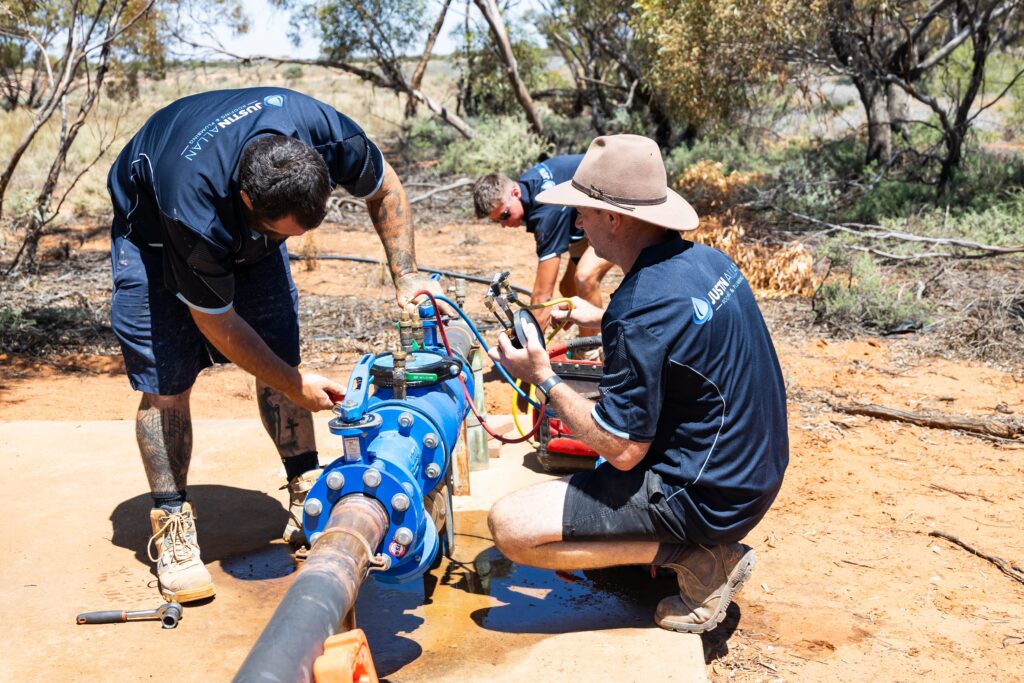
Hot water systems are essential for providing comfortable and efficient living in our homes. Over time, hot water systems can become less effective, and eventually, they may require replacement. Knowing when it’s time to replace your hot water system can save you money, improve energy efficiency, and ensure a comfortable living environment for you and your family.
In this in-depth guide, we will explore the top five signs that indicate your hot water system may need replacing. By identifying these early warning signs, we empower you to make informed decisions about your home’s hot water system and ensure you’re not left in the cold during the winter months. Our expertise in domestic plumbing, hot water systems, and gas fitting will help you make the best choice for your home’s hot water needs.
Whether you’re dealing with a faulty system or looking to upgrade for increased efficiency, this guide provides valuable insights and practical advice to help you identify when it’s time for a new hot water system. As your trusted local experts, we’re here to provide support and guidance in selecting, installing, and maintaining your home’s hot water system, ensuring supreme comfort and energy efficiency all year round.
1. Ageing Hot Water System: Know its Lifespan
One key factor to consider is the age of your hot water system. Most systems have an average lifespan of 8-12 years, depending on the type, usage, and maintenance. As hot water systems age, they become less efficient and more prone to failure, making it crucial to monitor their performance and consider replacing them proactively.
It’s wise to consult your system’s manufacturer documentation for an accurate estimate of its lifespan. If you’re unable to determine the age of your system or suspect it’s nearing the end of its life, it’s a good idea to seek expert advice to assess its condition and performance.
2. Inconsistent or Insufficient Hot Water: A Common Red Flag
One of the most noticeable signs that your hot water system requires replacement is inconsistent or insufficient hot water supply. If your showers are suddenly lukewarm or your appliances aren’t providing the desired results, it might be an indication that your system is struggling to meet your home’s hot water demands.
Several factors can cause inconsistent hot water supply, including sediment build-up, corroded heating elements, or a failing thermostat. While some of these issues can be resolved through maintenance or repairs, consistently struggling with inadequate hot water could signal it’s time for a new system.
3. High Energy Bills: The Cost of Inefficiency
Older or malfunctioning hot water systems can contribute to increased energy consumption and higher utility bills. As your system ages, it might require more energy to maintain the desired water temperature, leading to higher energy usage and costs. If you’ve noticed a significant spike in your energy bills without a noticeable change in your water consumption habits, it’s worth considering a more energy-efficient hot water system.
Upgrading to a more efficient model or switching to a different type of hot water system, like a solar-powered or tankless option, could save you money in the long run and reduce your home’s environmental footprint.
4. Frequent Repairs: When the Fix is Not Enough
It’s not uncommon for hot water systems to require occasional maintenance or repairs. However, if you find that your system demands frequent, costly repairs, it might be more practical to invest in a new system rather than continually addressing ongoing issues. In this case, a new hot water system can provide peace of mind and long-term savings, saving you the hassle and expense of recurring problems.
Before deciding on a replacement, consult with a professional to accurately assess if your current system is beyond repair or nearing the end of its lifespan.
5. Leakage or Corrosion: The Telltale Signs of Trouble
Visible leakage or corrosion around your hot water system is another sign that it may be time for a replacement. Leaks can occur due to damaged valves, cracked tanks, or corroded connections. Although minor leaks can sometimes be fixed with repairs, a persistent leaking problem indicates a more serious issue that could warrant a new system.
Similarly, if you notice corrosion on your hot water system’s components or connections, it could be a sign of imminent failure. Corrosion can lead to weakened components, reduced system efficiency, and eventual system breakdown. In such cases, it’s essential to consult a professional for a thorough assessment and discuss replacement options.
Recognise the Signs and Make a Proactive Decision
By understanding the top five signs that it’s time to replace your hot water system, you can proactively address potential issues, reduce energy costs, and maintain a comfortable, efficient living environment for you and your family. As your trusted local experts, we’re here to help you assess, select, and install the ideal hot water system for your home, providing ongoing support and maintenance to ensure optimal performance throughout its lifespan.
Don’t wait until you’re stuck in the cold; if you’re experiencing any of these warning signs, contact our expert team at Justin Allan Roofing & Plumbing Pty Ltd today to discuss your hot water system needs and enjoy the peace of mind that comes with a reliable, efficient, and well-functioning hot water system.
